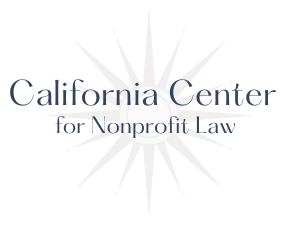
TG 25: Multiple-Parent Title-Holding Organizations – IRC Section 501(c)(25)
The Internal Revenue Service (IRS) has released the revised Technical Guide (TG) 25, which outlines the requirements for multiple-parent title-holding organizations exempt under Internal Revenue Code (IRC) Section 501(c)(25). Tax-exempt title-holding organizations, such as multiple-parent title-holding corporations and trusts, offer a practical means for tax-exempt organizations to transfer title to property and address other legal factors.
Section 501(c)(25) allows unrelated tax-exempt organizations, including pension trusts, to pool investments and invest in real property through a title-holding organization. The IRS also amended Section 514 to exclude unrelated business income tax (UBIT) on debt-financed properties for some Section 501(c)(25) shareholders and beneficiaries. These amendments occurred to promote real estate investments.
Organizational Requirements
Section 501(c)(25) organizations may be organized either as corporations, including associations, or trusts. Corporations, whether for-profit or nonprofit, do not affect Section 501(c)(25) eligibility.
Furthermore, Section 501(c)(25) organizations must have no more than 35 shareholders or beneficiaries and have only one class of stock or beneficial interest. The organization must be organized solely to take and hold title to real estate, collecting income from such property, and remitting the net balance of any income to one or more permissible shareholders or beneficiaries.
Eligible shareholders or beneficiaries include the following:
- A qualified pension, profit-sharing, or stock bonus plan that meets the requirements of Section 401(a);
- A governmental plan described in Section 414(d);
- The United States, any state or political subdivision thereof, or any agency or instrumentality of the foregoing; or
- An organization described in Section 501(c)(3).
Additionally, the articles of incorporation or trust document must contain the following provisions:
- A provision permitting the organization’s shareholders or beneficiaries to dismiss the Section 501(c)(25) organization’s investment advisor upon a vote of the shareholders or beneficiaries holding a majority interest in the Section 501(c)(25) organization (as per Section 501(c)(25)(D)(i))
- A provision permitting the shareholders or beneficiaries to terminate their interests by either or both of the following:
- By selling or exchanging their stock or beneficial interest to any permissible shareholder or beneficiary described in Section 501(c)(25)(C), provided the sale does not result in an increase in the number of shareholders or beneficiaries above 35; or
- By having their stock or beneficial interest redeemed by the Section 501(c)(25) organization within 90 days’ notice.
Holding and Activities
Section 501(c)(25) limits qualifying organizations to acquiring and holding title to real estate, collecting income from such property, and turning over the net income to permissible shareholders or beneficiaries. Permissible activities include real property, personal property leased with real property, options to purchase real property, and reasonable cash reserves.
Prohibited activities include engaging in ordinary trade or business activities, holding interests in real estate held as a tenancy in common, holding interests in partnerships or real estate investment trusts, making mortgage loans, and engaging in options trading.
Permissible Shareholders or Beneficiaries of Title-Holding Organizations
Organizations under Section 501(c)(25) may have no more than 35 “parents,” or shareholders or beneficiaries, but may have only one parent. However, only specific types of organizations can be parents, including the following:
- A qualified pension, profit sharing, or stock bonus plan that meets the requirements of Section 401(a), including master trusts and group trusts;
- A governmental plan (within the meaning of Section 414(d)), which includes:
- Plans to which the Railroad Retirement Act of 1935 or 1937 applies;
- Any plan of an international organization exempt from taxation; and
- Plans established and maintained by an Indian tribal government.
- The United States, any State or political subdivision thereof, or any agency or instrumentality thereof, including:
- Political subdivisions;
- Agencies; and
- Instrumentalities.
- An organization described in Section 501(c)(3).
Additionally, shareholder organizations must control Section 501(c)(25) organizations. More specifically, shareholder organizations must be able to dismiss the Section 501(c)(25) organization’s investment adviser, and terminate their interest in the Section 501(c)(25) organization.
Turning Over Income
A Section 501(c)(25) organization may hold reasonable cash reserves sufficient to meet its operational costs. Generally, it is reasonable if organizations hold initial subscriptions for less than one year before investing in real estate. The reserve amounts must be held as cash or short-term investments. This strategy allows shareholders or beneficiaries to pool their assets to invest in real estate.
Qualified Subsidiaries
Generally, Section 501(c)(25) organizations cannot hold stock. However, Section 501(c)(25)(E) contains an exemption that allows these organizations to own all the stock of a qualified subsidiary. A corporation that is a qualified subsidiary does not qualify as a separate corporation for tax purposes, and therefore does not need to have a separate employer identification number (EIN).
The Section 501(c)(25) organization must always directly hold 100% of the stock of the qualified subsidiary during its existence. If the organization holds less than 100% of the stock at any time, then that stock is no longer permissible for it to hold and still qualify under Section 501(c)(25). However, a Section 501(c)(25) can hold more than one qualified subsidiary. Qualified subsidiaries also must comply with all requirements of Section 501(c)(25).
Unrelated Business Income
Since Section 501(c)(25) organizations must limit their activities to specified exempt purpose activities, any other activity jeopardizes their exemption. However, there are some exceptions to that rule, including the following:
- Income from personal property leased in conjunction with real property, as long as the personal property portion of the lease is not more than 15% of the total lease;
- Income from debt-financed property for the qualified shareholders of Section 501(c)(25) organizations, including:
- Qualified shareholders are educational organizations described under Section 170(b)(1)(A)(ii);
- Their affiliated Section 509(a)(3) supporting organizations; and
- Qualified trusts under Section 401; and
- Unrelated business income of up to 10% of their gross income, if that unrelated business income is incidentally derived from the holding of real property. However, this limitation does not apply if the organization establishes to the satisfaction of the Secretary of the Treasury that the excess UBI was inadvertent, and reasonable steps are being taken to correct the circumstances causing the excess unrelated business income.
Frequently Asked Questions (FAQ)
Must Section 501(c)(25) title-holding organizations file an annual tax return?
Section 501(c)(25) organizations generally must file an annual Form 990-series return or notice. Failure to file the return or notice for three consecutive years will result in the organization automatically losing its tax-exempt status.
Are contributions to a Section 501(c)(25) organization tax-deductible?
No. Contributions to a Section 501(c)(25) are not tax-deductible under Section 170.
What is the difference between the permissible forms of organizations under Section 501(c)(2) and Section 501(c)(25)?
Section 501(c)(2) organizations must be corporations, including associations. On the other hand, Section 501(c)(25) organizations can be corporations, including associations, or trusts.
Contact the California Center for Nonprofit Law Today
Every business, including nonprofit organizations, needs a good lawyer. We have the expertise and experience to help your nonprofit organization grow and comply with all applicable laws and regulations. Contact the California Center for Nonprofit Law today at 949-892-1221, email info@NPOlawers.com, or complete our contact form to learn more about our services.
